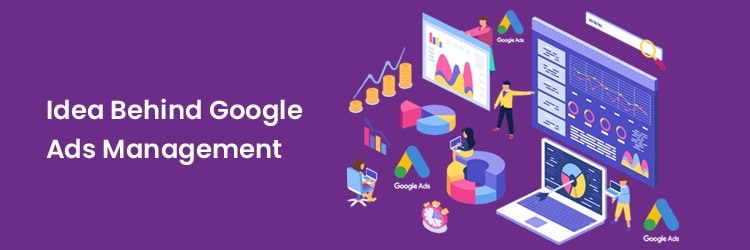How to Make Best of Your Google Ads?

It’s not simple to keep track of your Google Ads account. It’s difficult since it requires your team’s continual attention. That focus and consistency, on the other hand, may pay off handsomely for your company (in terms of sales, profit, and lead generation).
Professional Google Ads management services can assist if your firm sees the advantages of Google Ads management but also the strain it would have on your staff.
Continue reading to learn how to manage your Google Ads account!
Apply best practices to set up your Google Ads account
Before your firm begins its first Google Ads campaign, you should study the account structure. If you’re familiar with the Google Ads account hierarchy, you’ll know that it specifies the structuring of the campaigns, creating ads, and keywords.
When you develop a campaign, your team must design a set of ad groups that correspond to the campaign’s theme or emphasis. Your ad campaign’s efficacy will suffer if your team creates inappropriate ad groups and keywords.
Create synchronized ad groupings that include relevant and specified keywords. Then, create a suitable landing page and an appealing ad.
Investigate your competitors’ PPC strategy
The following step in Google ads management services takes your business outside of the Google Ads program.
While your company may build and execute an ad campaign without first analyzing rivals, PPC experts do not advocate it. Skipping competition research is detrimental to the success of your approach. Instead, it degrades your performance, resulting in lost leads, revenue, and ad spending.
If you work with a Google ads management company, they should undertake a competitor study. Only work with an agency or consultant that offers this service for the greatest outcomes. It will boost your campaign and assist your company in getting the most out of your advertising money.
Align your strategy to your intended audience and objectives
It’s critical to consider your audience and goals when you plan out your account structure. Inconsistency between your aims and your target audience may result in the failure of your campaign. Take the time to evaluate your objectives and target audience, and then utilize that knowledge to create your campaign targeting.
Ads and landing pages should be in sync
Landing pages play an important role in boosting conversions in online advertising. When a person clicks on your ad, they are sent to your landing page, where they may investigate your products or services, learn about your company, and make a purchase.
Companies, on the other hand, make a common error in this aspect of Google Ads handling. They do not build specific landing pages for their advertisements. It’s simple to see why.
Creating, designing, and launching bespoke landing pages is a time-consuming and resource-intensive operation. Not to mention that it may necessitate the use of outside experts. A landing page that does not entirely coincide with your advertisements, on the other hand, might harm your ad campaign in a variety of ways. Because it does not deliver on your ad text, it can reduce impressions, raise expenses, and devastate conversions.
Effective management can help you improve your bids
While Google Ads can handle your ad bids, adopting a hands-on approach to bid management gives your team useful advertising expertise as well as the opportunity to improve your ad expenditure.
It’s a time-consuming aspect of Google Ads management services administration, but it’s one that industry professionals utilize and suggest. Depending on your strategy and ad campaigns, your team may need to devote considerable effort to strategic bid management. Strategic bid management, on the other hand, is worthwhile since it enables your team to actively manage your ad budget.
Refine your target audience and keywords
After you’ve created your ad structure, finished your competition analysis, and established your dedicated landing page, you can begin managing your Google Ads account. Expect to devote time to managing your campaign once a week.
You should focus on refining your target audience and keywords as part of your continuous Google Ads management. Following the launch of your campaign, your team may begin gathering data on keyword efficiency and audience selection.
With this information, your team may focus on the most successful audience members, keywords, and timings. This proactive step should be taken since it enhances the results of your campaign and helps your organization to get the most out of its advertising investment.
To improve marketing performance, use A/B testing
Another important aspect of Google Ads management is A/B testing. It, like every other aspect of ad management, needs time and commitment. However, it may also produce a significant payout for you, your team, and your organization.
You can quickly design and deploy trials with Google Ads. However, you must first spend time examining your data and building your tests. In certain circumstances, you may need to collaborate with team members such as engineers for a landing page design or copywriters for an ad copy revision.
Your organization should always do an A/B test for the greatest outcomes.





